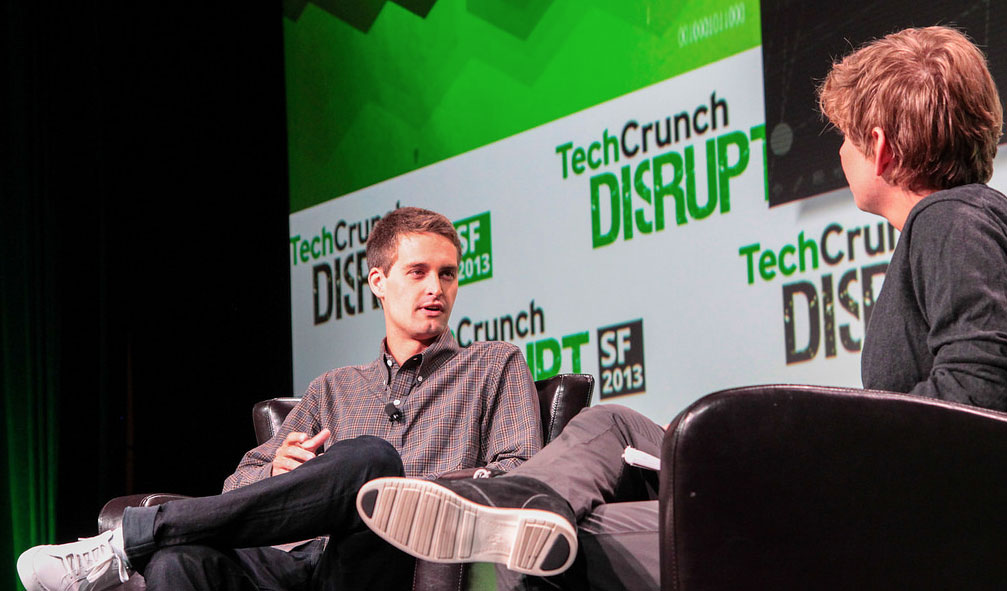Morning Report: As Snap’s market cap drifts lower, don’t lean on Facebook’s own troubled stock market history for comfort. Snap is unique.
Snap is off nearly three points today, trading around $20.50 at the time of writing. The self-described camera company still trades above its $17 IPO price, but below its first day open and its recently set 52-week high.
The numbers tell the story: Snap is up 20.59 percent from its IPO price, but down 14.58 percent from its first day open ($24), and 30.37 percent from its all-time high ($29.44). If you are a regular investor who didn’t get the chance to buy shares at the $17 price, it’s likely you are in the red.
Is there comfort in history? To some, maybe. Facebook, now one of tech’s Big 5 alongside Microsoft, Apple, Alphabet, and Amazon, struggled as a public company following its own public offering. Facebook lost more than half its IPO value at one point, trading under $18 per share after going public at $38. Today, Facebook trades for more than $138.
Given Facebook’s recovery, should we view Snap’s initial and not-quite-unexpected declines through the prism of the larger social network’s past? Perhaps not.
Returning to Facebook’s original S-1 document filed on its path to becoming a public company, the company reported $1.00 billion in GAAP net income in calendar 2011, its then most recently completed calendar year. And Mark Zuckerberg’s creation had $3.9 billion in cash on the books, ahead of its IPO proceeds. Snap, by contrast, lost $514.6 million in its most recent calendar year, a higher amount that it lost in the year previous.
Summing: Facebook had a rough IPO route, even with profits. Snap, a yet unprofitable concern, has more to prove.
To put your finger on how standards have changed for public companies, read the following 2012 Washington Post excerpt regarding Facebook’s struggling post-IPO share price:
The main problem with Facebook’s business model, analysts say, is that the company hasn’t shown it can sustain major advertising revenue off of its social data: General Motors announced that it was going to stop advertising on Facebook just days before the IPO.
Facebook has also failed to generate the same kind of revenue through mobile devices as it has on traditional computers, a growing problem as the site’s audience shifts to smartphones. The company is trying to address this with a combination of acquisitions, such as its $1 billion purchase of Instagram in April, and attempts to innovate on mobile ad formats
That’s different.
Today in the Crunchbase Daily:
Okta files for IPO
- IPOs are making a comeback. Okta, a provider of enterprise identity management services, has filed to raise up to $100 million in a public offering. The San Francisco-based unicorn posted revenue of $112 million in the first three quarters of last year, with a net loss around $65 million.
Yext is going public too
- Next is Yext. The digital marketing company, whose technology allows businesses to manage information across search platforms and to show results in map form, is also seeking to raise $100 million. New York-based Yext posted revenue of around $89 million in the first nine months of 2016, with a net loss around $29 million.
Roblox raises $92M for social gaming
- Kid-focused social gaming platform Roblox, known for lego-like games, has raised $92 million in a new investment round backed by Meritech Capital and Index Ventures. The Silicon Valley-based company says its platform offers more than 15 million user-generated games.
Featured Image via Flickr user TechCrunch under CC BY 2.0. Image has been cropped

Stay up to date with recent funding rounds, acquisitions, and more with the Crunchbase Daily.


![Illustration of a guy watering plants with a blocked hose - Global [Dom Guzman]](https://news.crunchbase.com/wp-content/uploads/quarterly-global-3-300x168.jpg)
67.1K Followers